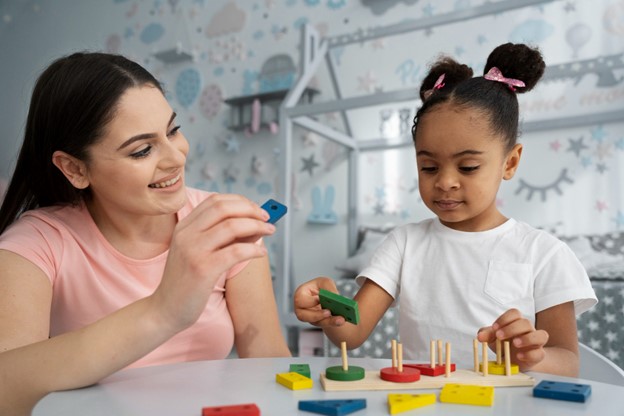Motor skills form the building blocks of a child’s abilities. They include both gross motor skills—like running and jumping—and fine motor skills—such as grasping small objects. These abilities are crucial for everyday activities that children do as they grow.
By breaking down these stages, parents can understand typical child growth better. This understanding helps them support and nurture their children’s gross and fine motor skills effectively.
Join us as we explore the intricate journey of developing motor skills in infants, toddlers, and beyond. You’ll gain insights and practical tips for parents to help support children on this remarkable path.
Foundational Early Years: From Infancy to First Steps
In the first few months after birth, infants show automatic behaviors known as reflexes. The Moro and rooting reflexes are vital for initial survival instincts, like grasping and feeding. As they grow, these reflexes form a base for more advanced gross motor abilities.
Around three months old, infants develop neck and hand strength. This growth paves the way for major milestones such as rolling over, sitting up, and grasping toys. These early gross motor developmental milestones lead to more control over their movements.
- By 6 to 8 months, babies focus on sitting independently, crawling, and voluntarily grasping objects. These actions set the stage for genuine mobility and exploration.
As they approach their first birthday, many children start taking their first independent steps between 12 to 15 months. This forward momentum is a blend of developed gross and motor skills and growing fine motorskills.
Helping children during these early stages involves providing safe spaces for movement and encouraging simple play activities. Smiley faces, bright toys, and encouraging words often make all the difference and boost their confidence as they tackle new challenges. It’s crucial during these stages to ensure that activities are fun, yet not overwhelming.
Developmental Progression: The Toddler to Preschooler Stage
Between the ages of 1 and 3 years, children refine their abilities at an impressive rate. They’ll start running, climbing, and recognizing shapes, a blend of motor and early cognitive skills. As toddlers, they’re constantly on the move, honing gross motor skill milestones.
During preschool years, activities such as:
- Hopping
- Balancing
- Throwing a ball
These become key as they develop further hand-eye coordination.
Social environments, like playgroups, play a significant role. Regular interaction with peers through structured play supports this progression. Engaging with other children helps them learn turn-taking, sharing, and understanding simple rules, adding social skills to their budding gross motor skills development.
Activities like puzzle-building and drawing enhance fine motorskills and set the groundwork for academic readiness. These activities improve hand strength and help children prepare for writing later on.
Creating a stimulating learning space helps toddlers and preschoolers thrive. Children need ample opportunities to practice these skills safely, with guidance and encouragement.
Encouraging and Supporting Motor Skills Development in Children
Parents play a vital role in nurturing their child’s growth. Creating a safe and stimulating environment can help enhance your child’s gross motor development stages.
Choosing age-appropriate toys encourages motor skills development in children without causing frustration. It’s important that these toys challenge, yet remain enjoyable and beneficial.
Here are ways to support your child:
- Incorporate Play: Make play a central means of support, offering varied activities suited to different stages.
- Be Observant: Watch out for signs of developmental delays, but remember each child progresses at a unique pace.
- Stay Encouraging: Offer praise and encouragement, helping children feel celebrated for every small success.
Safety and fun should go hand in hand. By understanding your child’s milestones in gross motor abilities and fine motorskills, you can better support their growth journey. Celebrate the small victories, and ensure learning always feels like an adventure.
In summary, developing motor skills in infants and watching as they grow into capable toddlers is a rewarding journey. Understanding these stages helps parents provide the best possible support for their children’s overall development.

